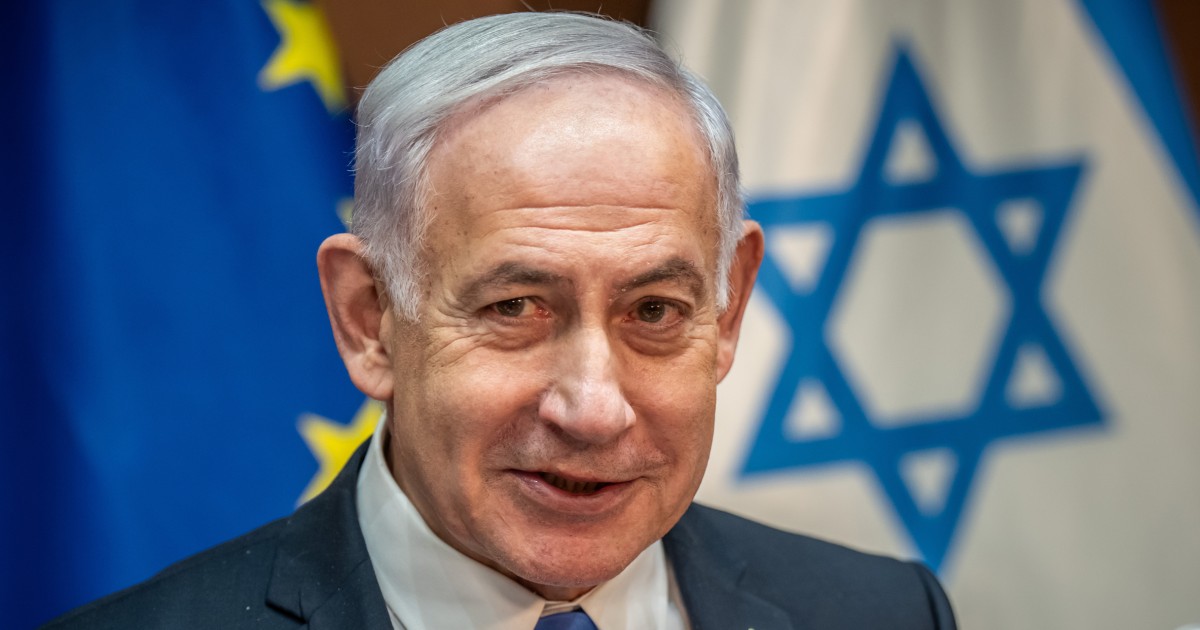Abu Dhabi – where President Donald Trump was throughout the Middle East this week, it was the star of the complex celebrations, announced new American policies and unveiled billions of dollars in new economic partnerships.
He even visited a mosque, scenes of the pride he felt for “my friends” as he took his beauty. “This is an incredible culture,” Trump said.
But one neglect of the trip has become more clear with each station: Israel.
Tensions between Trump and Israeli Prime Minister Benjamin Netanyahu were strained before the president spent the week to visit three major Arab allies in America: Saudi Arabia, Qatar and the United Arab Emirates.
By the end of the trip on Friday, Trump seemed to put more pressure on the relationship. He spent the past few days in a meeting with the new leader of Syria – the former al -Qaeda leader in which the United States has set a $ 10 million reward – and announced that he was raising sanctions on the country in a move that opposed Israel, but Crown Prince Muhammad bin Salem from the Kingdom of Saudi Arabia urged the president to take it.
Follow the coverage of the living policy here
Trump told reporters that he had discussed the sanctions decision with Netanyahu, and was widely framed by others.
“I think it was very common, and certainly in the Middle East,” Trump said. He also cited talks with Bin Salman and Turkey, who saw this step as a decisive opportunity to survive as a country.
A day after the promise to lift the sanctions, Trump praised Syrian President Ahmed Al-Sharra as “a young and attractive young man”, and urged the former rebel fighter to join Ibrahim’s agreements-achieving the president’s distinctive policy of the president from his first term that he normalizes between Israel and many Arab countries.
During the trip, Trump also bowed the concept of an agreement with Iran at an amazing distance, without offering any details to alleviate some of Israel’s concerns. On the eve of the president’s journey, his administration announced that it had reduced a single deal with Hamas, the terrorist organization that was designed in the United States, which attacked Israel on October 7, 2023, to secure the launch of the last hostage of America in Gaza.
“We hope that this is the first of those recent steps necessary to end this brutal struggle,” Trump said of the release of Edin Alexander. He added on Friday that “we will discover soon” if Israel is able to liberate nearly twenty hostages believed to be alive in Gaza.
Meanwhile, Netanyahu bombed Gaza during Trump’s trip to the area, killing more than 100 people during the past 24 hours, according to local health authorities.
When asked about Israel’s plans to expand the war in Gaza, because he is pushing for a ceasefire, Trump hit a measured tone.
“I think a lot of good things will happen next month, and we will see. We have to help also the Palestinians,” Trump said. “As you know, many people are starving on Gaza, so we have to look at both sides.”
Nevertheless, Israel is increasingly concerned about Trump’s conclusion of a quick nuclear deal with Iran and Arab leaders who are the president’s thinking, according to a person familiar with the dynamism between Trump and Netanyahu.
This person said: “The journey did not put a great distance between Trump and Netanyahu as much as it shows.”
In his conversation with reporters, Trump rejected the idea that his journey marginalizes the closest ally of America in the region. He said on Wednesday that the United States, which has a strong relationship with Arab leaders, is “very good for Israel.”
Over the course of four days of reaching deals, Arab leaders have shown their ability to provide Trump with a tangible economic victory, and it can display it abroad as benefiting from Americans at the country, as well as the kind of warm welcome that resonates with the president.
“The job they performed in a fairly short period of time is great. They are great people. Great leaders. Three great leaders,” Trump told reporters on Friday.
In contrast, Trump’s relationship with Netanyahu is largely focused on national security concerns, from Iran to the war in Gaza to the dynamics of the transformation in Syria.
Until now, Israel has largely preserved those fears behind the scenes – which were not with the former presidents, specifically Barack Obama and Joe Biden, even when they pledged to protect the “unparalleled American League” with Israel. The United States continues to support Israel strongly, as Trump sent the military equipment in which the Biden administration stopped.
In a statement, National Security Council spokesman James Hiite Trump described the oldest ally of Israel in his history.
“Israel did not have a better friend in its history than President Trump,” he said. “We continue to work closely with our ally to Israel to ensure the liberation of the remaining hostages in Gaza, and Iran never gets a nuclear weapon, and to enhance regional security in the Middle East.”
“As mentioned repeatedly and repeatedly in his first and second period, the president is obligated to ensure that Iran does not obtain a nuclear weapon,” he added.
As for the time that the dynamic between Trump and Netanyahu goes to, one of the president’s ally has reached that deepening relations with Arab leaders will eventually protect Israel because of his close relationship with the United States at the same time, the ally of Trump noted the inability of Trump’s inability, saying: “Trump does what Trump does.”


